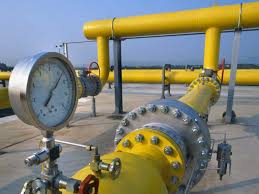Islamabad: The proposed break-up of SSGC and SNGPL into five public distribution companies has been opposed by independent consultants KPMG Taseer Hadi and Co, according to a local newspaper report.
KPMG’s report expressed the fear that the breaking up of SSGC and SNGPL would make these entities unprofitable and affect its equity severely.
According to the report, the creation of a separate transmission company would result in those bulk and large consumers to become a part of it, who could be termed as ‘cash cows’ in terms of revenue generation purposes.
As a result of this, domestic gas consumers would be provided gas supply from their respective provincial distribution companies as envisaged in the original laid out plan.
It would translate into higher tariffs for domestic consumers as cross subsidy won’t no longer be available in lieu of the transfer of industrial and bulk consumers to a separate transmission company.
KPMG said that if this proposed break-up plan gets approved, it would result in transmission and distribution losses increasing from the current 10-12pc range to above 25pc on the basis of distribution.
Endorsing the existing infrastructure as the best option, KPMG said it offered the best value in terms of share price to SNGPL of Rs185 per share.
Option 2 which translates into creating one transmission entity and 4 provincial distribution companies would result in a share value of Rs170 and option-3 which would end up in one transmission entity, with two north and south distribution companies will also fetch the same Rs170 value per share.
The fourth option which has been pushed by majority of the provinces envisages the creation of four province wise transmission and distribution entities which will result in a share value of around Rs184.
The forecast capital expenditure for all four options has been calculated at around Rs300-305b over the course of next ten years.
KPMG added that if the proposed plan of unbundling goes ahead, Khyber Pakhtunkhwa distribution company would become unprofitable because of the high percentage of unaccounted for gas (UFG) losses, if it wasn’t offered transmission business too.
The breakup according to a petroleum ministry official would cost Punjab dearly as Article 158 of the constitution states that fresh gas field discoveries will be given preferential allocation in the provinces they are found, affecting its residential and industrial consumers.
This would disadvantage Punjab as its industry would become uncompetitive in comparison to other provinces which would be using locally produced gas and will solely be dependent on RLNG costing Rs900-1,000.
KPMG’s report also highlighted the proposed break-up would result in higher consumer tariff for provincial users of the commodity, with 11pc increase in Punjab, 17-20pc increase in KP and 50pc in Balochistan.




